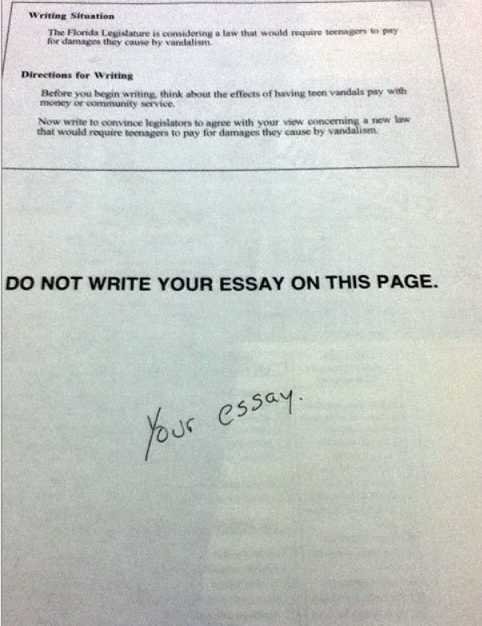My native language allows omitting quotation marks in sentences containing direct speech when the borderline between the "wrapper" sentence and the quoted speech is obvious and does not produce grammatical ambiguity.
To my understanding, the rules of direct speech in English require quotation marks in all cases. If that is correct, the joke below makes no sense because if it were about prohibited writing of a certain phrase, it must be spelled in quotes and with first word capitalized:
Do not write, "Your essay", on this page.
Without the proper punctuation, can the joke be valid?

